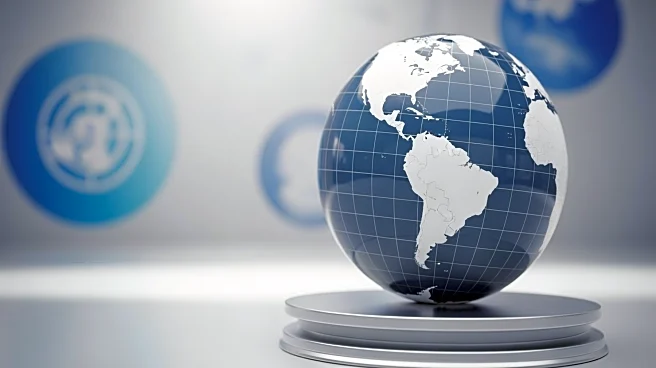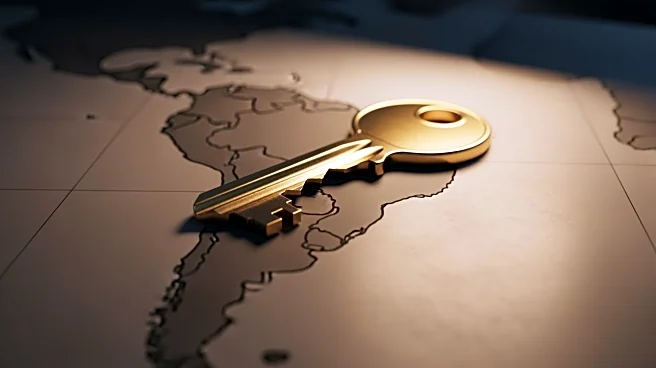What's Happening?
China has significantly increased its leadership role in Geneva-based UN agencies, focusing on development, technology, and technical standards. Over the past decade, China has secured senior positions such as UN special envoy to the Horn of Africa and resident
coordinators in Botswana and the Maldives. Additionally, China leads two UN specialized agencies: the Food and Agriculture Organization and the International Telecommunication Union. This expansion is part of China's broader strategy to influence international organizations and promote its state-backed NGOs in Geneva, countering criticism and advancing its global agenda.
Why It's Important?
China's growing influence in UN agencies has significant implications for global governance. By securing leadership positions, China can shape the agendas and operations of these organizations, potentially prioritizing its interests over those of other nations. This shift may affect international norms and standards, particularly in areas like technology and development. The increased presence of Chinese nationals in leadership roles could lead to a reorientation of UN policies, impacting global diplomatic and economic dynamics. Countries that rely on these agencies for support may find themselves navigating a landscape increasingly influenced by Chinese priorities.
What's Next?
As China continues to expand its influence, the United States and other nations may need to reassess their strategies within international organizations. The U.S. could focus on promoting its own candidates for leadership positions and increasing its financial contributions to counterbalance China's growing clout. Additionally, there may be increased diplomatic efforts to form coalitions with like-minded countries to uphold existing international norms and standards. The upcoming elections for leadership positions in various UN agencies will be critical in determining the future balance of power within these organizations.
Beyond the Headlines
China's strategy in UN agencies reflects a broader geopolitical shift, where emerging powers seek to redefine global governance structures. This development raises ethical and legal questions about the influence of authoritarian regimes in international organizations traditionally dominated by democratic nations. The long-term impact could include a shift in global priorities, with increased emphasis on development and economic cooperation over human rights and transparency. This evolution may challenge the foundational principles of the UN and require a reevaluation of its role in promoting global peace and security.

















